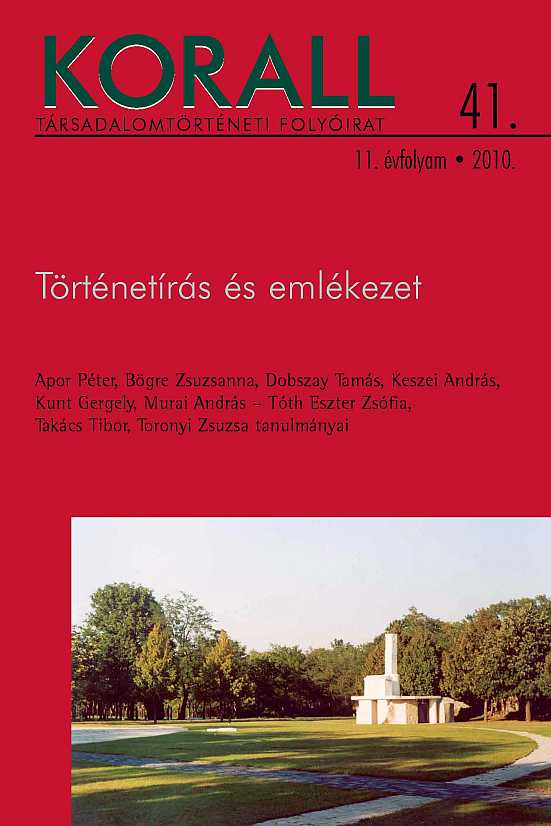Hitelesség és hitetlenség: emlékezet, történelem és közelmúlt-feldolgozás Kelet-Közép-Európában
Authenticity and Scepticism: Memory, History and Coming to Terms with the Recent Past in East-Central Europe
Author(s): Péter AporSubject(s): History
Published by: KORALL Társadalomtörténeti Egyesület
Summary/Abstract: In post-communist East Central Europe even the most dubious historical constructions seem to be able to gain significant credibility in the public. One of the most striking – often also shocking – features of the societies emerging after the fall of the Berlin Wall is a pervasive and strange disorientation, some kind of confusion that prevails in broadly conceived public manifestations on matters of history. There seems to be no broad social agreement about the condemnation and denial of fascist and communist dictatorships, the terror that these regimes imposed, the Holocaust, and the institutionalized state violence. The problems with history in this region have been recognised and the distortion interpreted as the result of various political attempts to appropriate the right to interpret the past. The scholarly discourse about the ways of coming to terms with the recent past in East-Central Europe, initially focused on the cultural and social frames that shape the images of history, has recently turned towards the concepts of collective memory. This approach offers an explanatory model that integrates the aspects of social practices, cultural codes and power. While this explanation is valid, there is more at stake in this case. The various representations of the recent past in the region elucidate the conspicuous uncertainty of the criteria of authenticity of historical representations in the region. Historical argument, evidential work and archival verification are arbitrary and contingent operations for broad segments of East-Central European societies. This condition opens the floor for odd para-historiographies, political justification and self-appointed prophets offering reference points that further increase the state of confusion in Central and Eastern Europe. The image of shaping the past in terms of collective memory, however, undermines the relevance of evidence-based criteria of authenticity. The concept of memory as a social and cultural product inimical to evidential procedures, therefore, is not sufficient as a valid explanation for the problems with contemporary history in the region. In fact, scholarship based on the concepts of memory, unintentionally, albeit regretfully, is part of the problem rather than solution.
Journal: Korall - Társadalomtörténeti folyóirat
- Issue Year: 2010
- Issue No: 41
- Page Range: 159-183
- Page Count: 25
- Language: Hungarian

